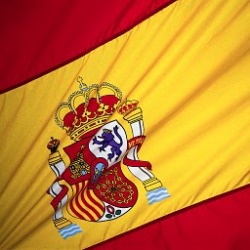Spain’s iGambling Revenue Soars 22.6% in Q2 of 2017

Spain is proving to be a strong market for online gambling, with the latest figures released by the country’s regulatory agency, the Dirección General de Ordenación del Juego (DGOJ), revealing that the industry’s revenue was up by 22.6 percent at the end of the second quarter of 2017 compared to its performance during the same quarter of 2016.
The numbers come on the heels of an equally impressive showing during the first quarter of 2017, when more than €122.7 million was generated throughout the first three months of the year. Overall, the second quarter numbers were slightly down at €121.3 million; however, the small dip is in line with the overall global trends for online gambling in 2017.
Let’s take a closer look at some of the details of the numbers shared by the DGOJ:
– Sports Betting. Sports betting numbers were softer in the second quarter of 2017 than they were during the first quarter with a 15 percent decline; however, the numbers are impressive when compared to the vertical’s performance during the same period in 2016. Sports betting generated €60.1 million in gross gaming revenue, a 12.3 percent increase compared to last year’s second quarter numbers.
– Slots. Online slots are where the Spanish online gambling market is seeing the most growth. Compared to last year, online slots are up 84 percent, bringing in €21.5 million for online operators.
– Other Casino Games. Overall, casino gaming online has increased by 52.5 percent compared to the second quarter of 2016. Live roulette brought in €9.5 million and saw a big surge in growth over 2016. Blackjack revenues for the second quarter of 2017 grew by 10.2 percent to just under €5 million. Poker even saw a year-over-year increase with a 5 percent revenue growth rate to €14.4 million.
– Player Traffic. An increase in player traffic is believed to be what’s driving the growth of the online gambling industry in Spain. During the second quarter of 2017, gambling sites in Spain hosted more than 645,000 Spanish players, a 7 percent increase over the number of unique players at Spanish online casinos during the second quarter of 2017. What is most impressive is that the Spanish casino industry actually reduced marketing expenditures by 16 percent and bonus offers at their sites by 14 percent. This indicates that the operators are managing to attract more players while spending less money.
Taxation Rates
The Spanish gambling act has established a complex method for taxing the revenues from all forms of gambling in the country. Unlike the UK system that assesses a flat taxation rate on all types of online gambling, the Spanish system levies different tax rates for different types of online games. Sports betting is charged a rate of 22 to 25 percent of gross gaming revenue, depending on the type of bets placed. Casino games are assessed a 25 percent taxation rate, which is lower than rates in many other European Union nations.
Shared Poker Pools
Just like Italy, France, and Portugal, Spain has seen an increasing level of disinterest in its online poker vertical, mostly due to its ring-fenced player policy. As a result, Spain has seen the 27 operators who had previously applied for and obtained iPoker licenses in the country recently reduced to just four active sites, with the situation expected to be remedied after the aforementioned countries enact their shared liquidity pools at the end of this year.
Counted amongst the many benefits touted for the new sharing arrangement are poker operators being able to pass on some of the savings made from their improved competitive advantage to the players in the form of promotions and increased guaranteed tournament prize pools. Furthermore, a greater volume of poker players on the sites will likely in turn lead to even more players being attracted to the game.
On the downside, however, some analysts have suggested that French players are likely to benefit the most from shared online poker liquidity as France is a stronger poker nation compared to Italy, Portugal, Spain, with this imbalance likely to deplete the economic ecosystem of these other countries over a short period.







